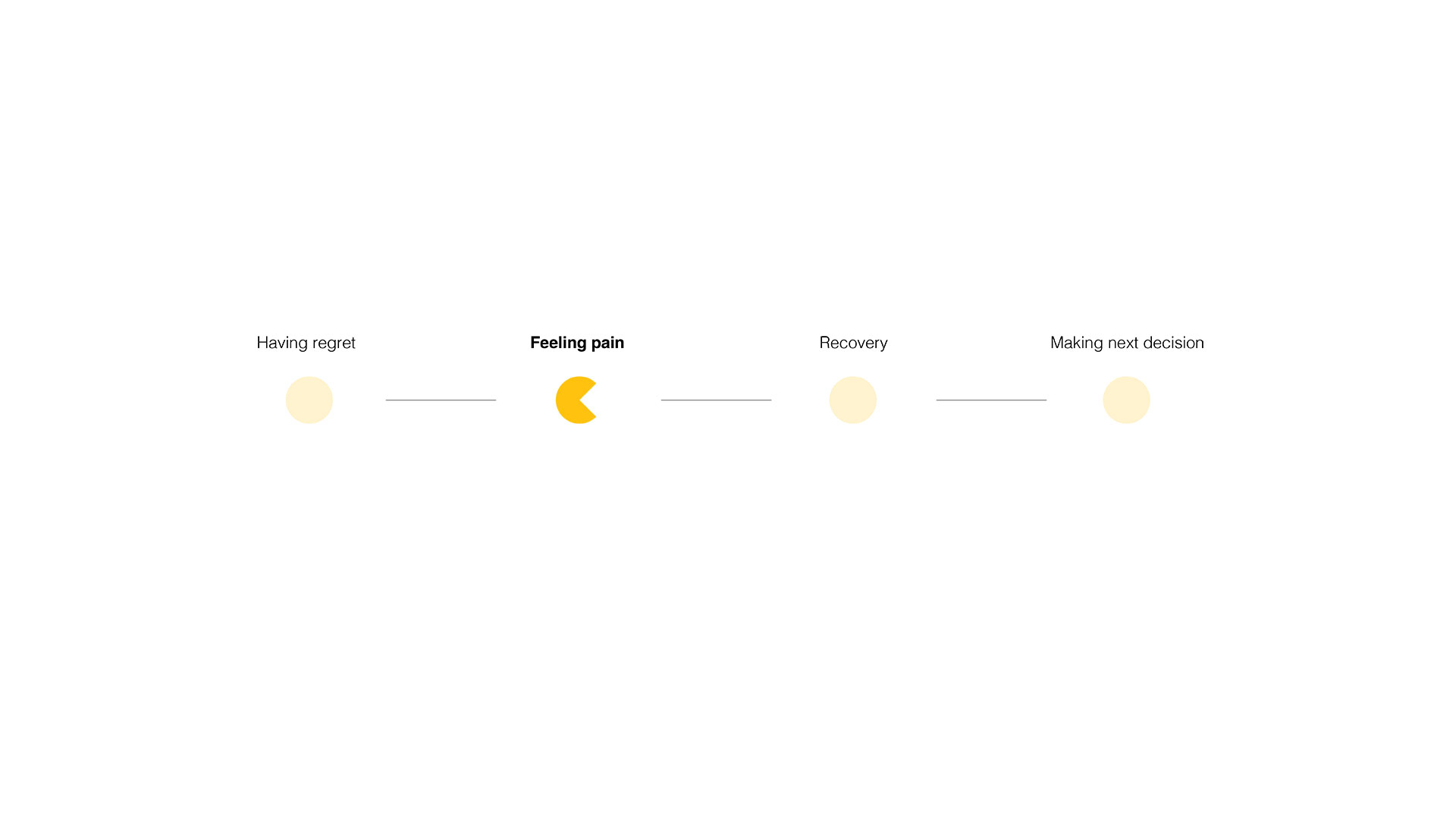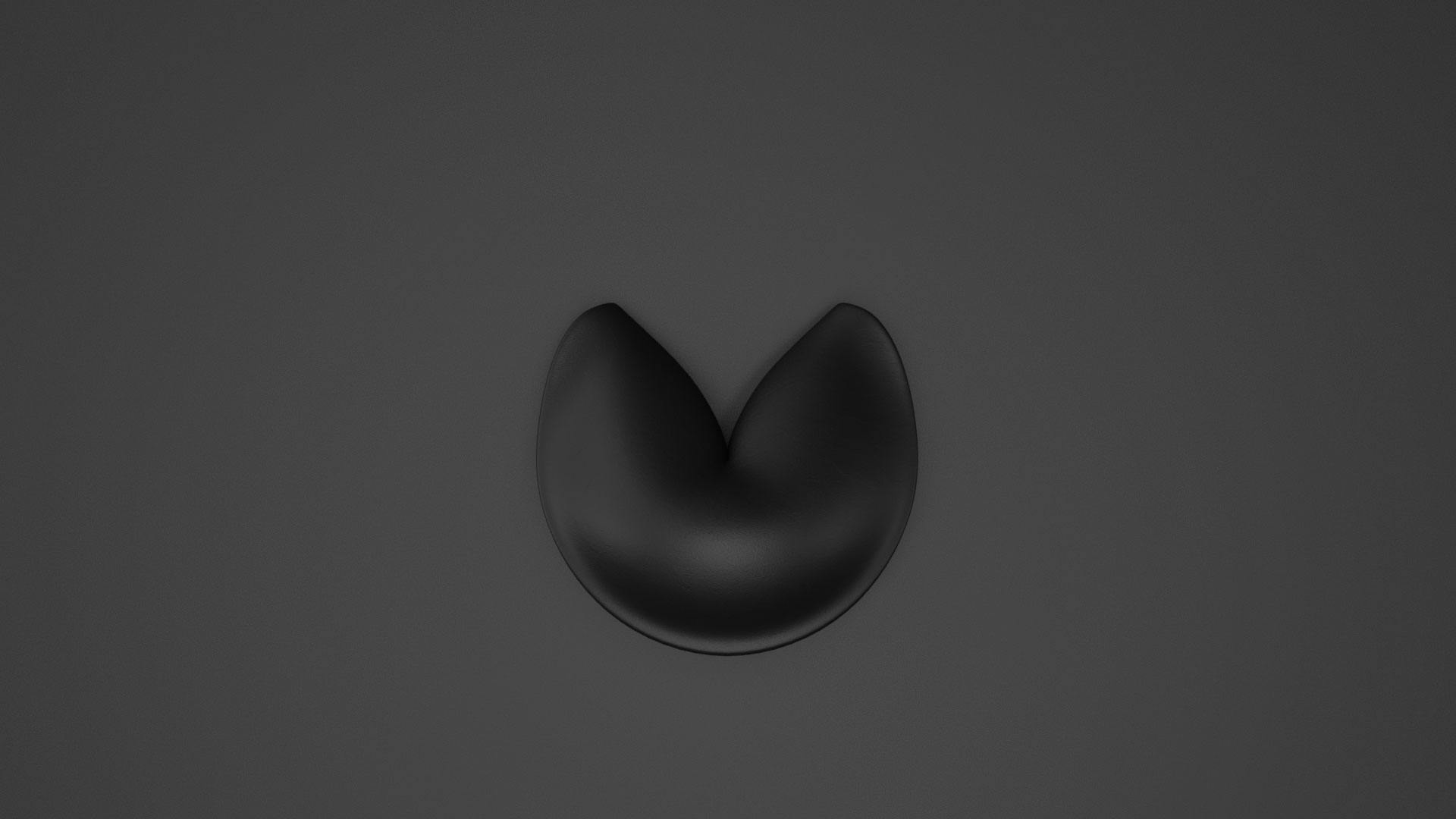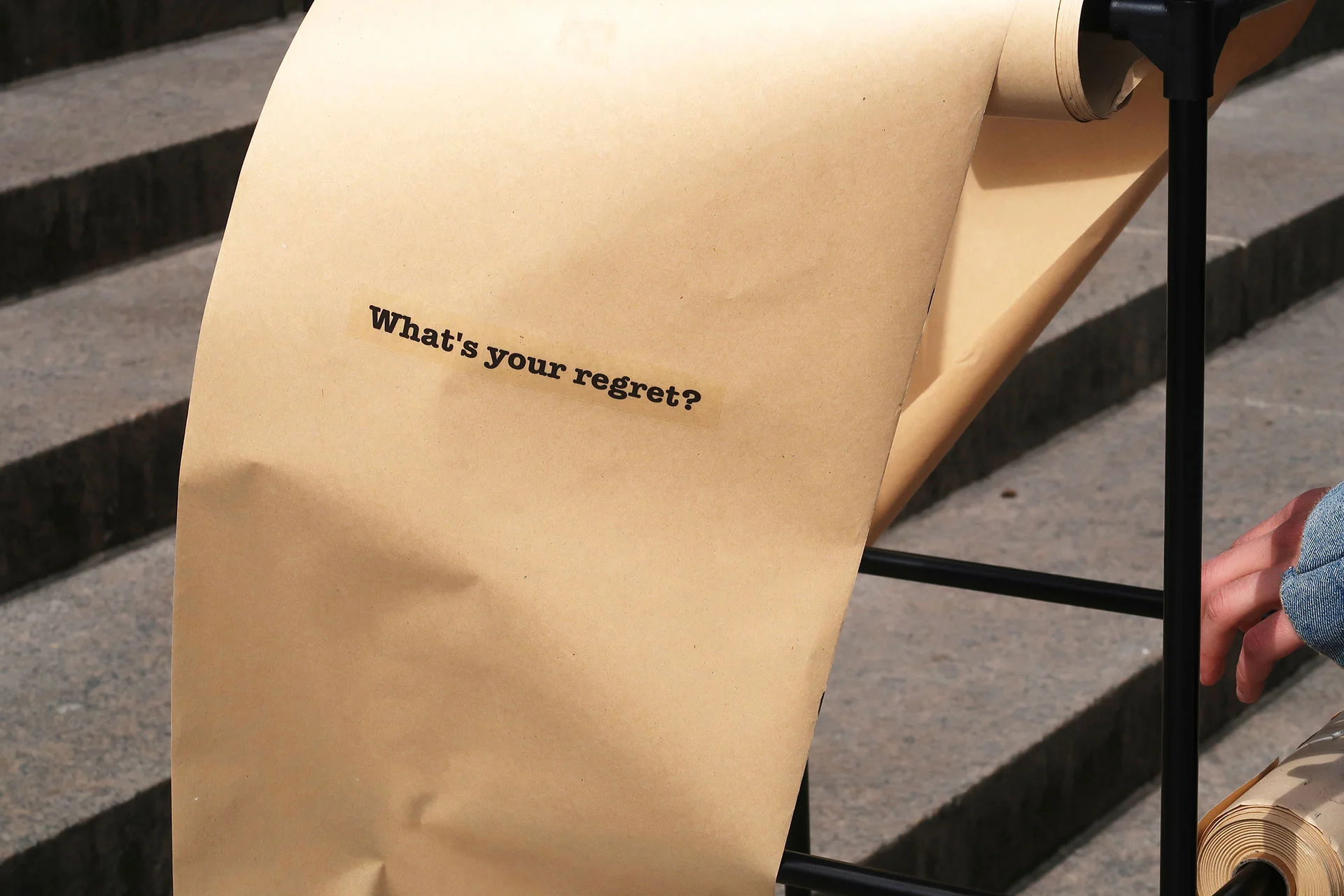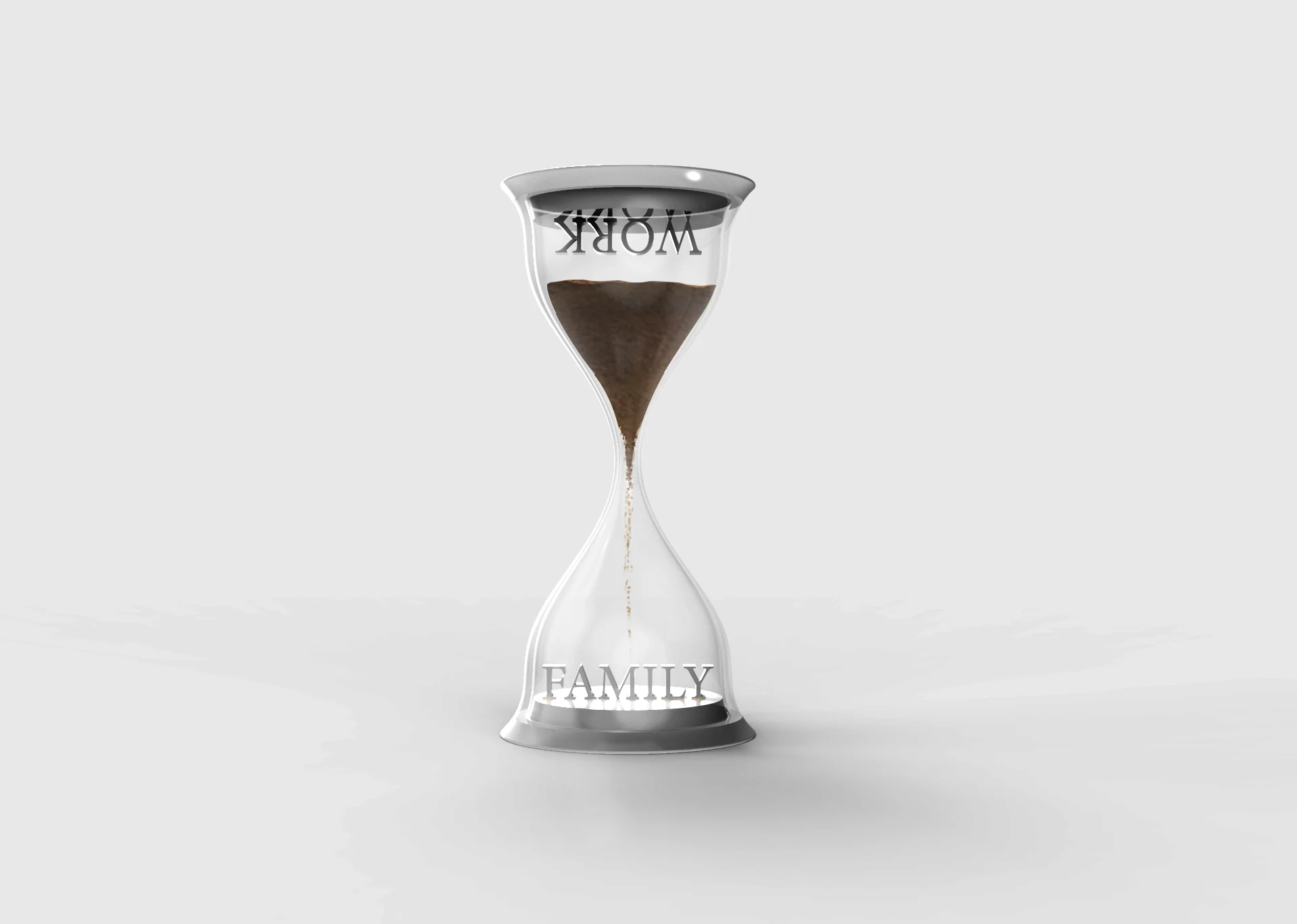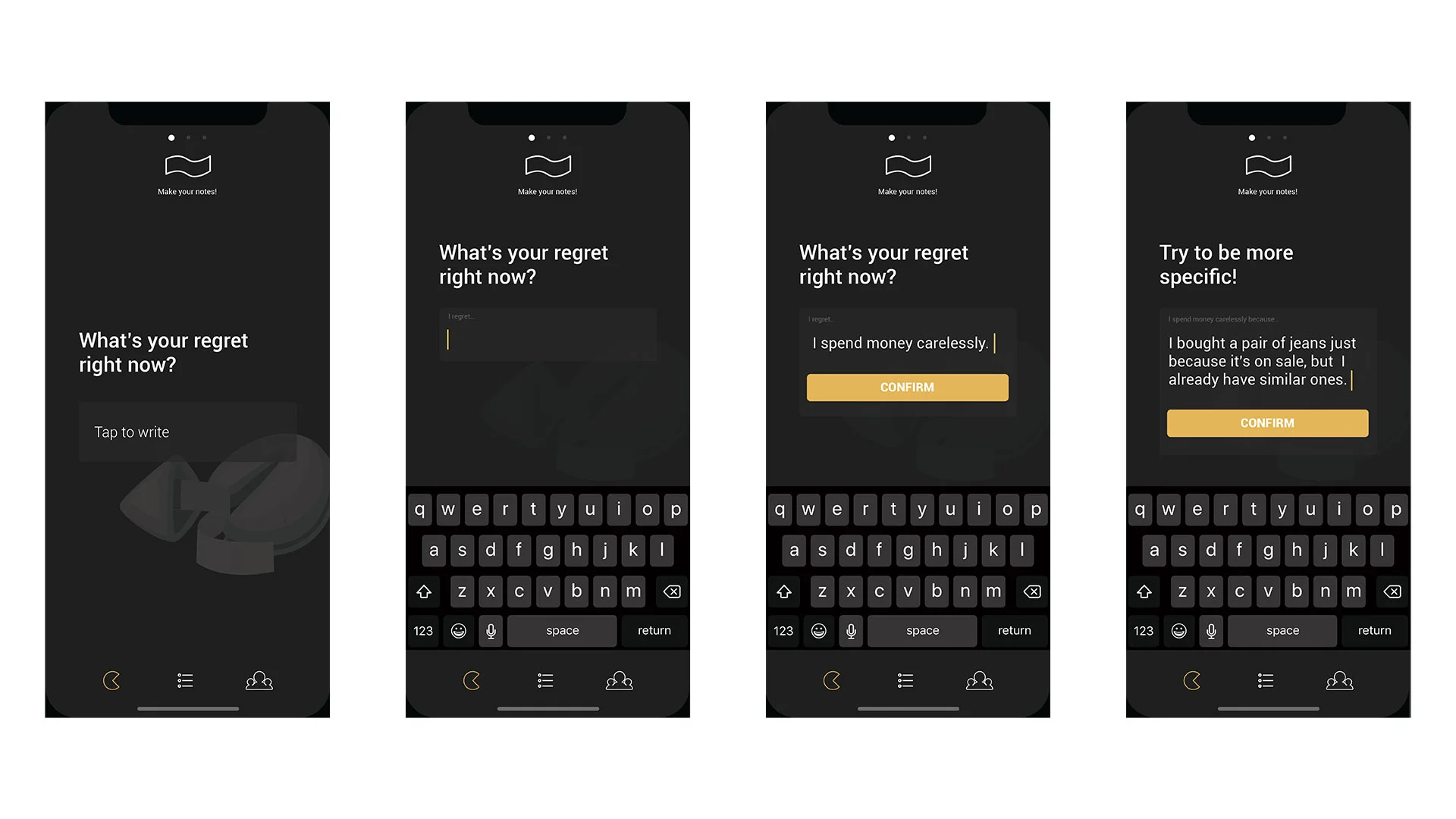NO DO-OVER: Designing Lives Without Regret
Starting from the idea that regret is inevitable, Tzu-Ching Lin’s thesis, No Do-Over: Designing Lives Without Regret, uses design to help people live with their regrets in peaceful coexistence. Tzu-Ching set out to understand why people have regrets, from both a scientific and an emotional point of view; in his investigation, he conducted interviews with subject matter experts, robust user research, and a co-creation workshop. The insights from his research culminated in a suite of designs intended to help people make peace with their regrets, and change their behavior to prevent avoidable regrets in the future.
“If there is one thing that can minimize people’s regret, I would say: prioritization.” says Tzu-Ching. Through speculative product designs, an app, and a public experience, Tzu-Ching’s thesis provides tools for attaining perspective and making better decisions, in order to live a life of less regret.
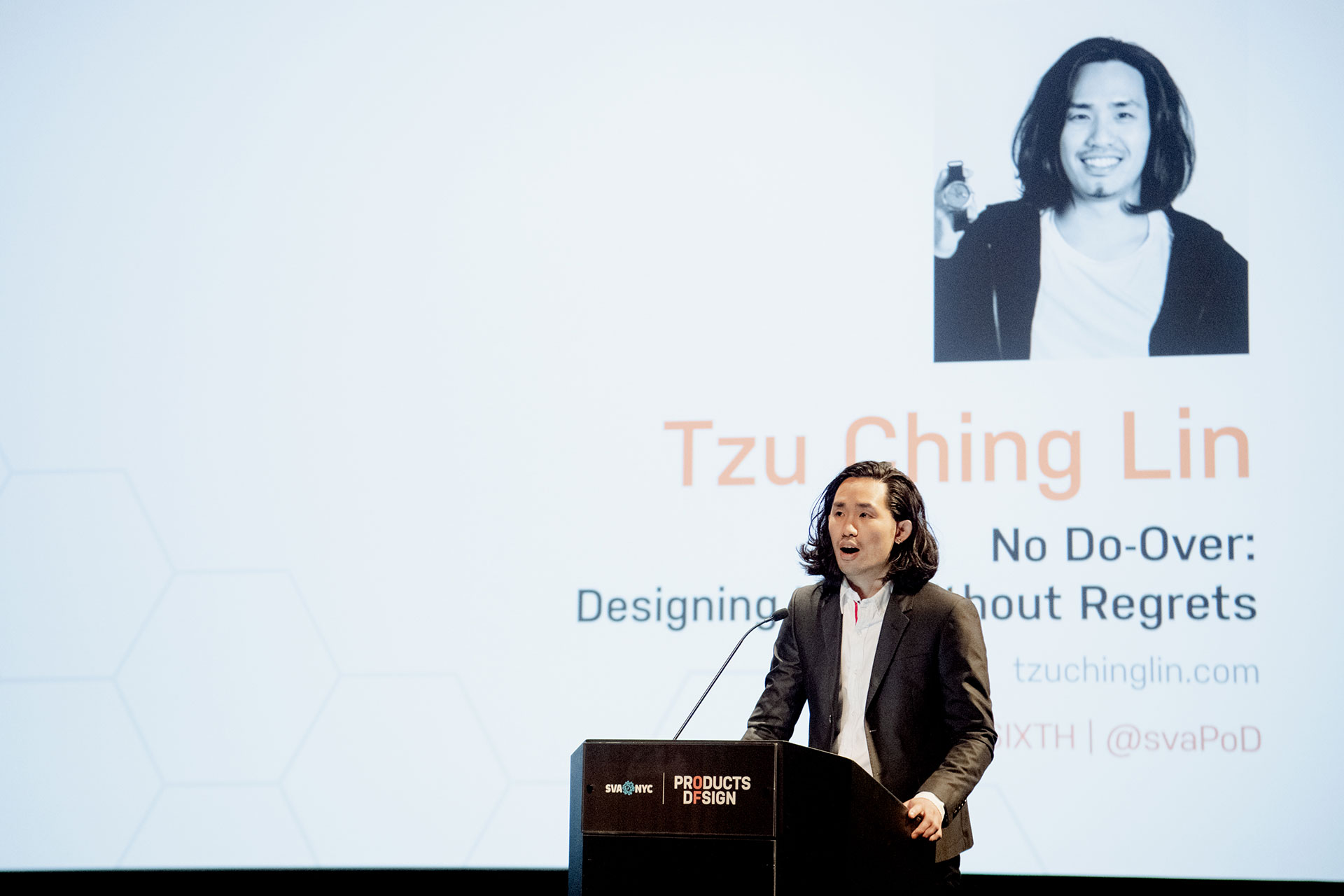
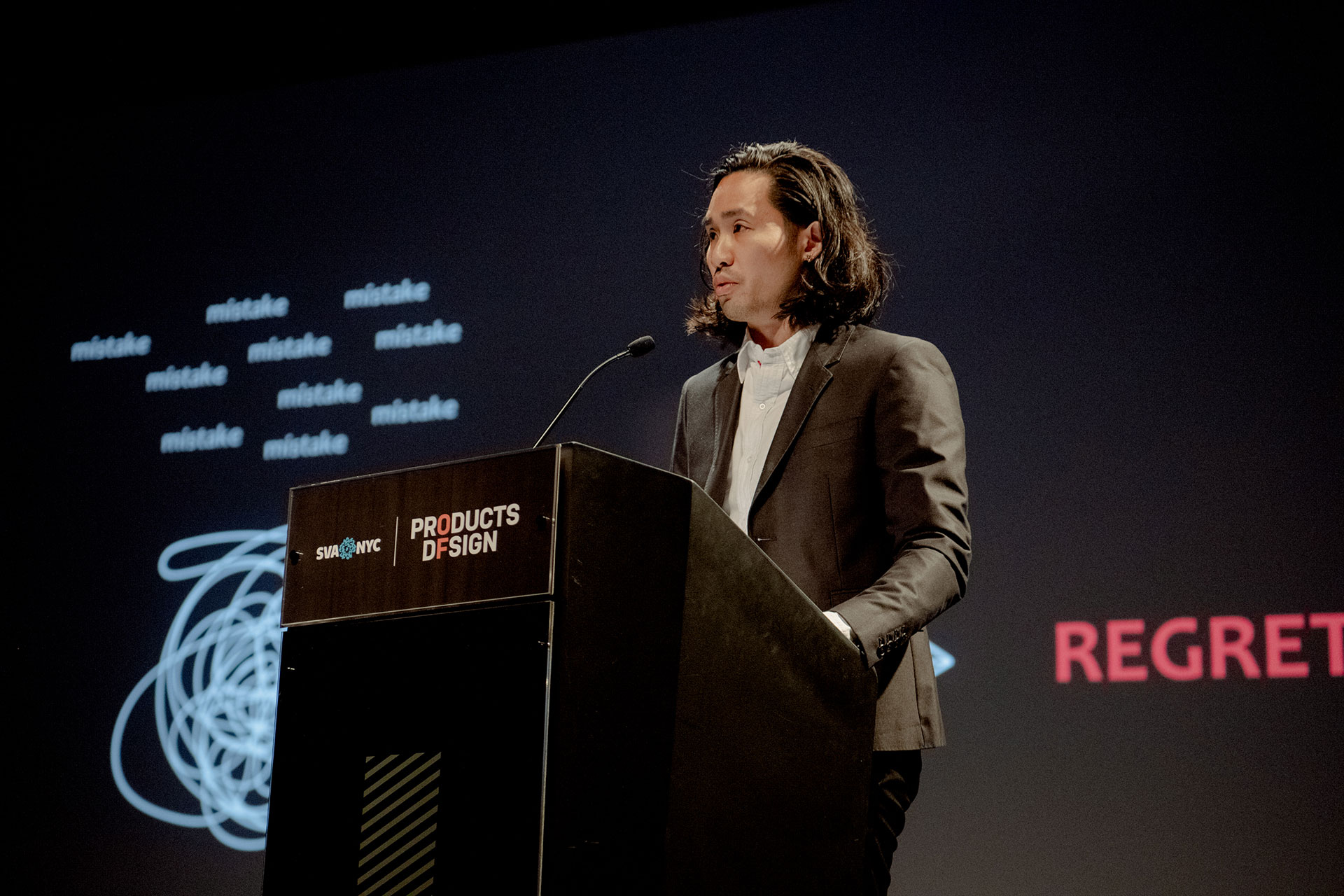
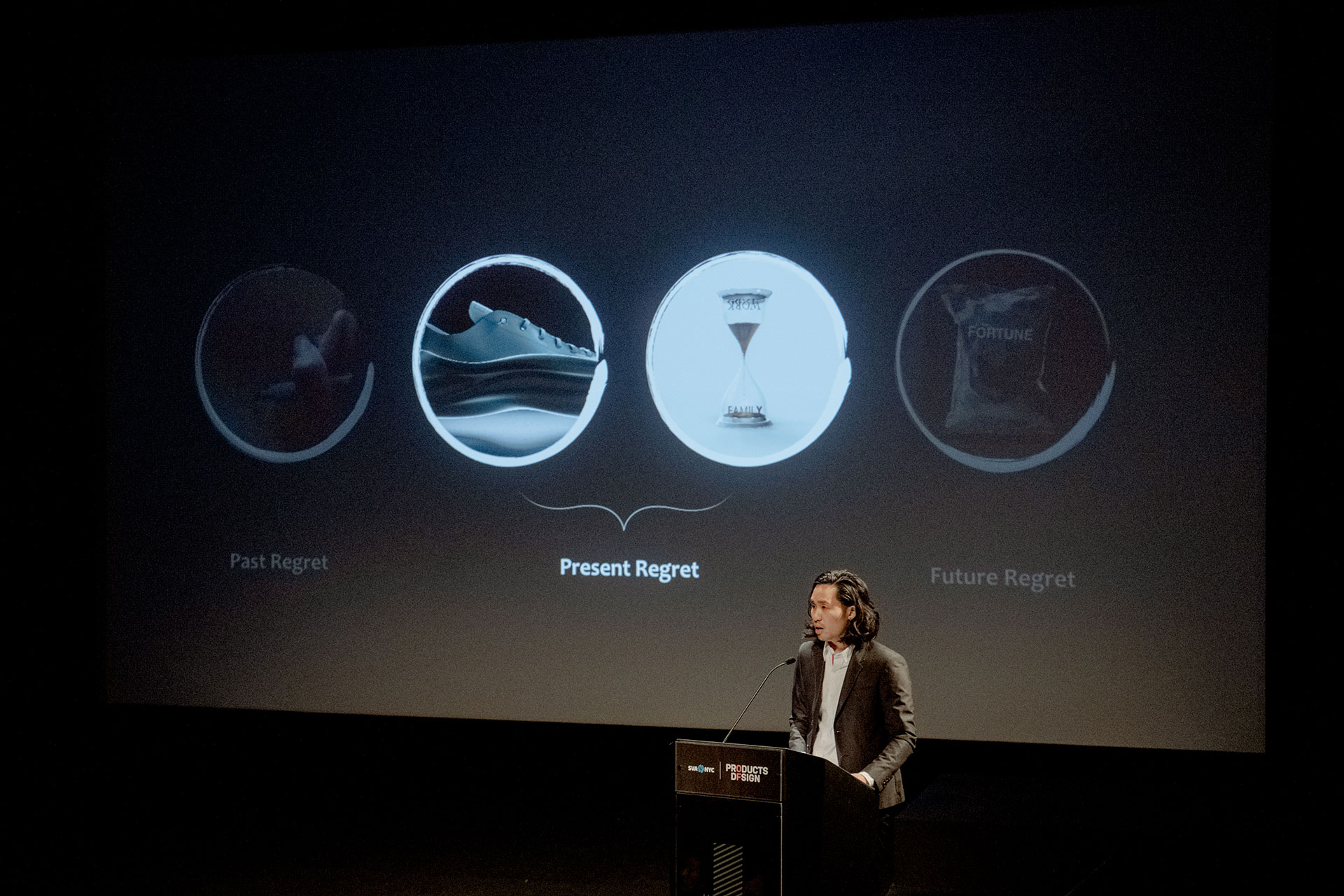
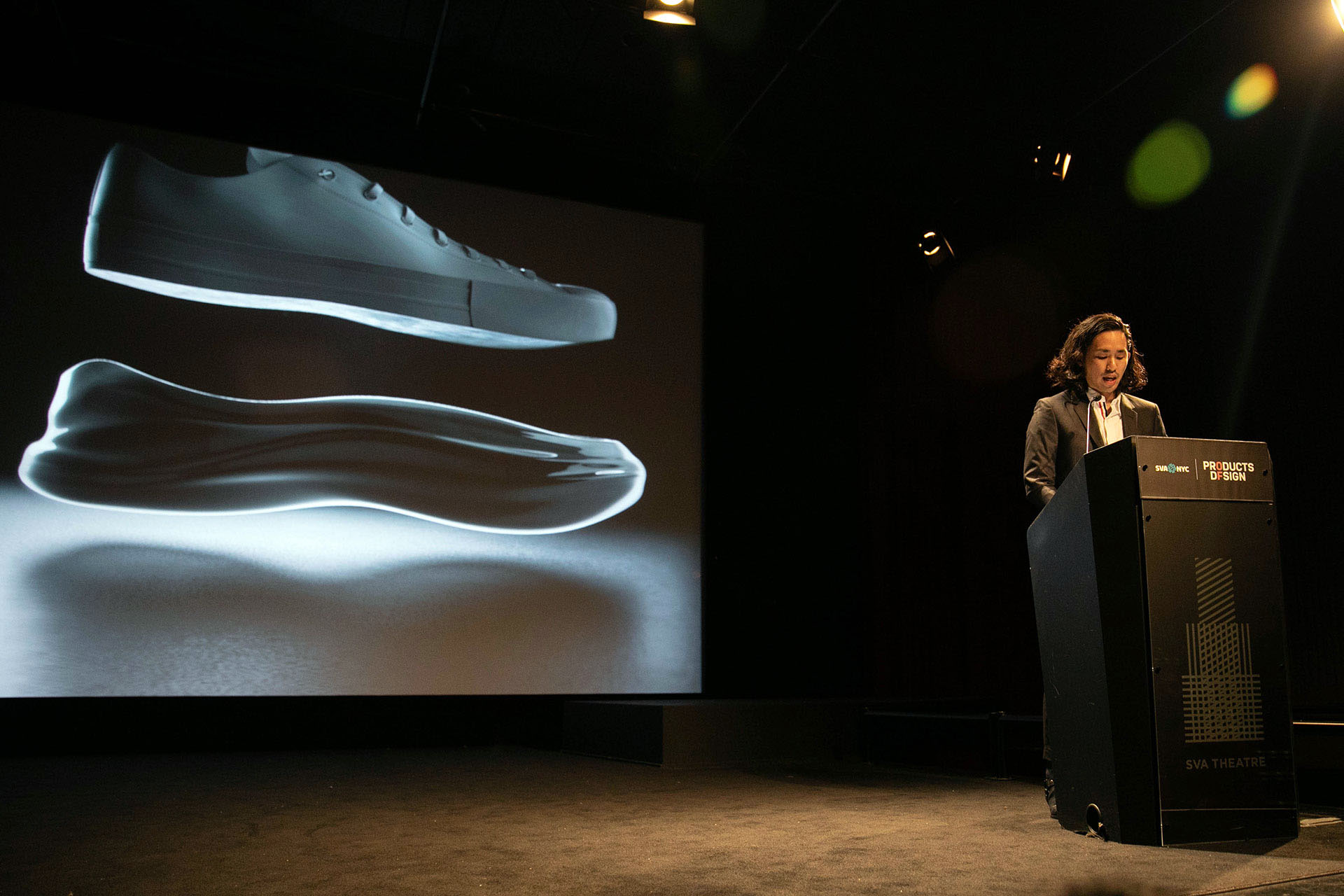
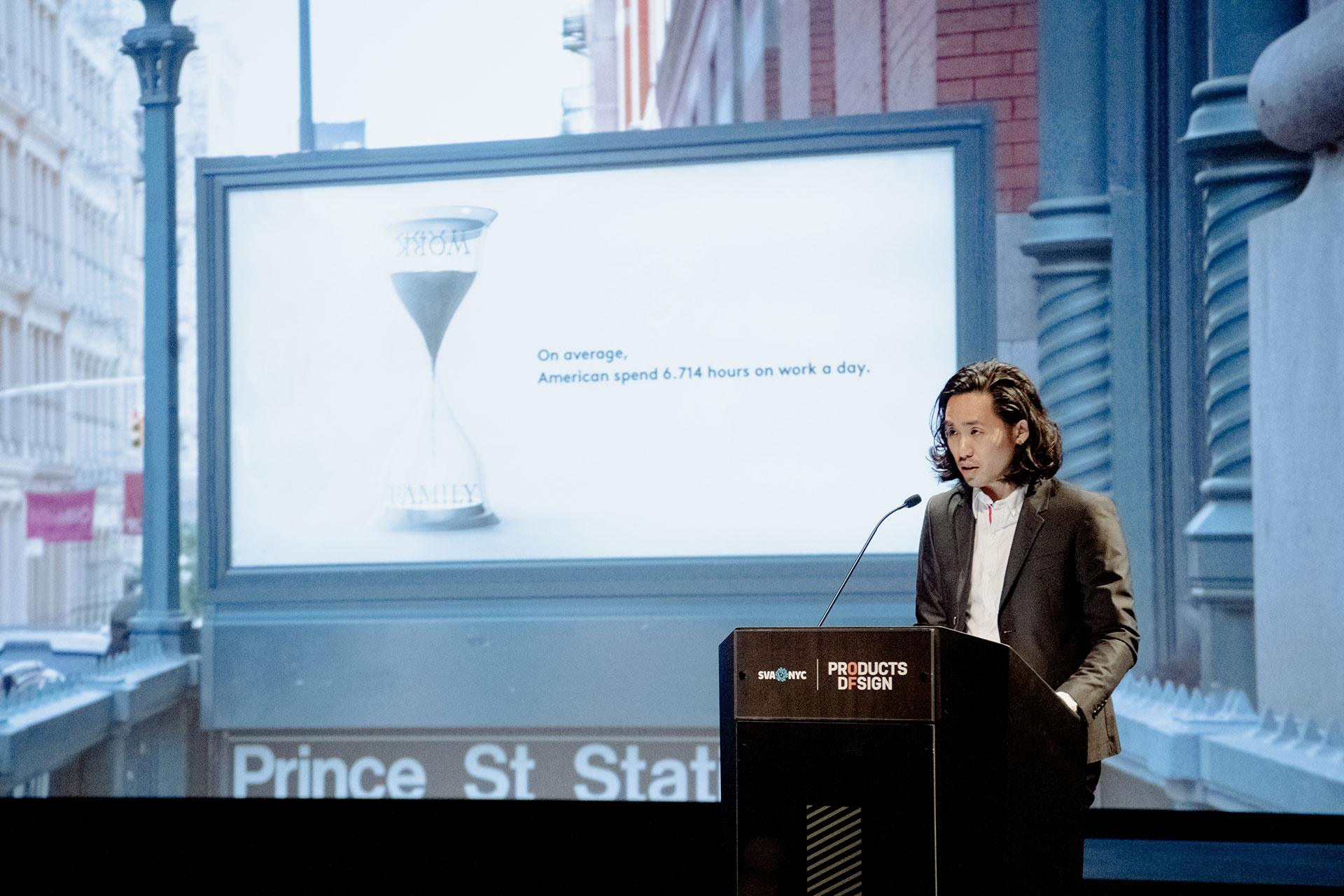
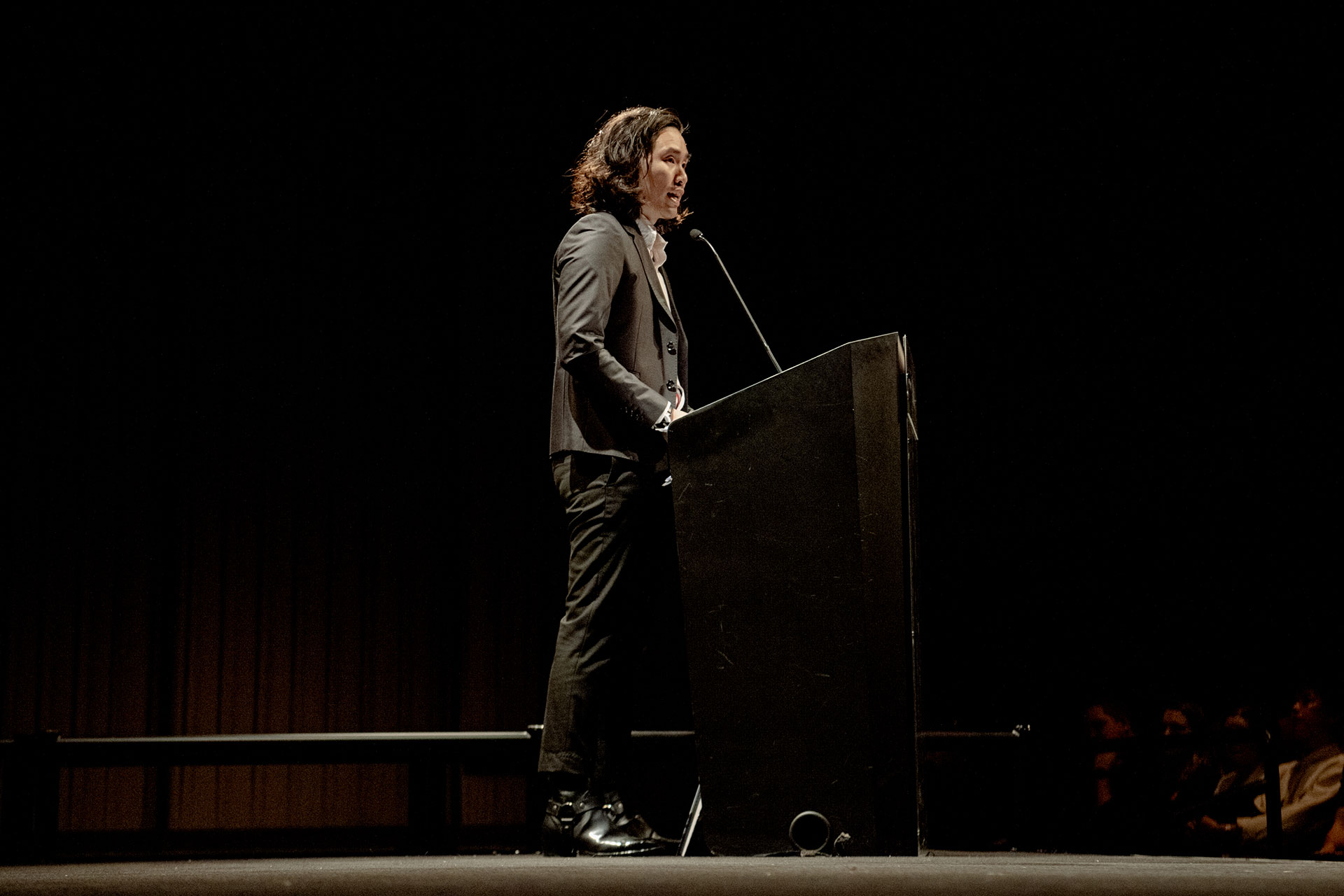
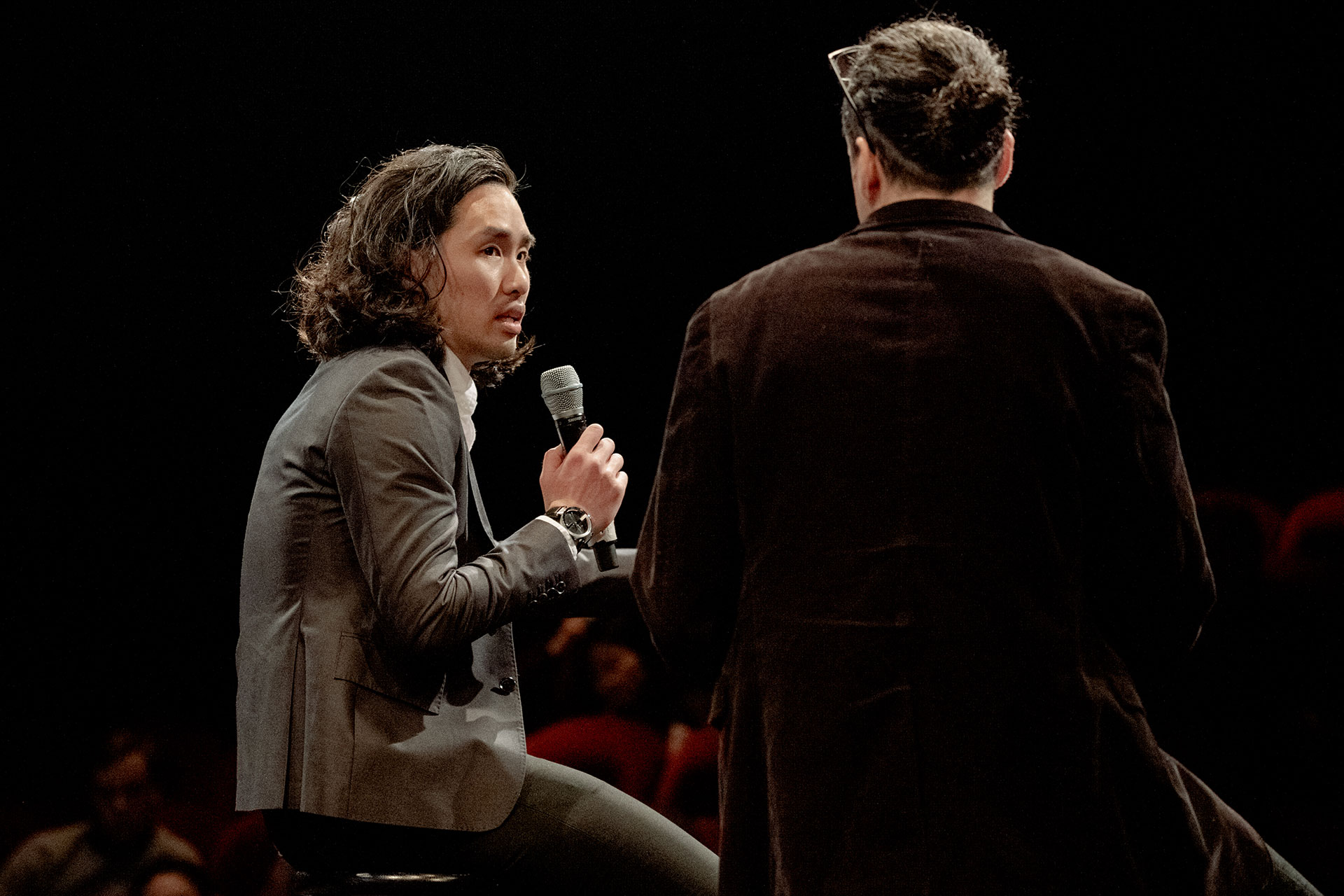
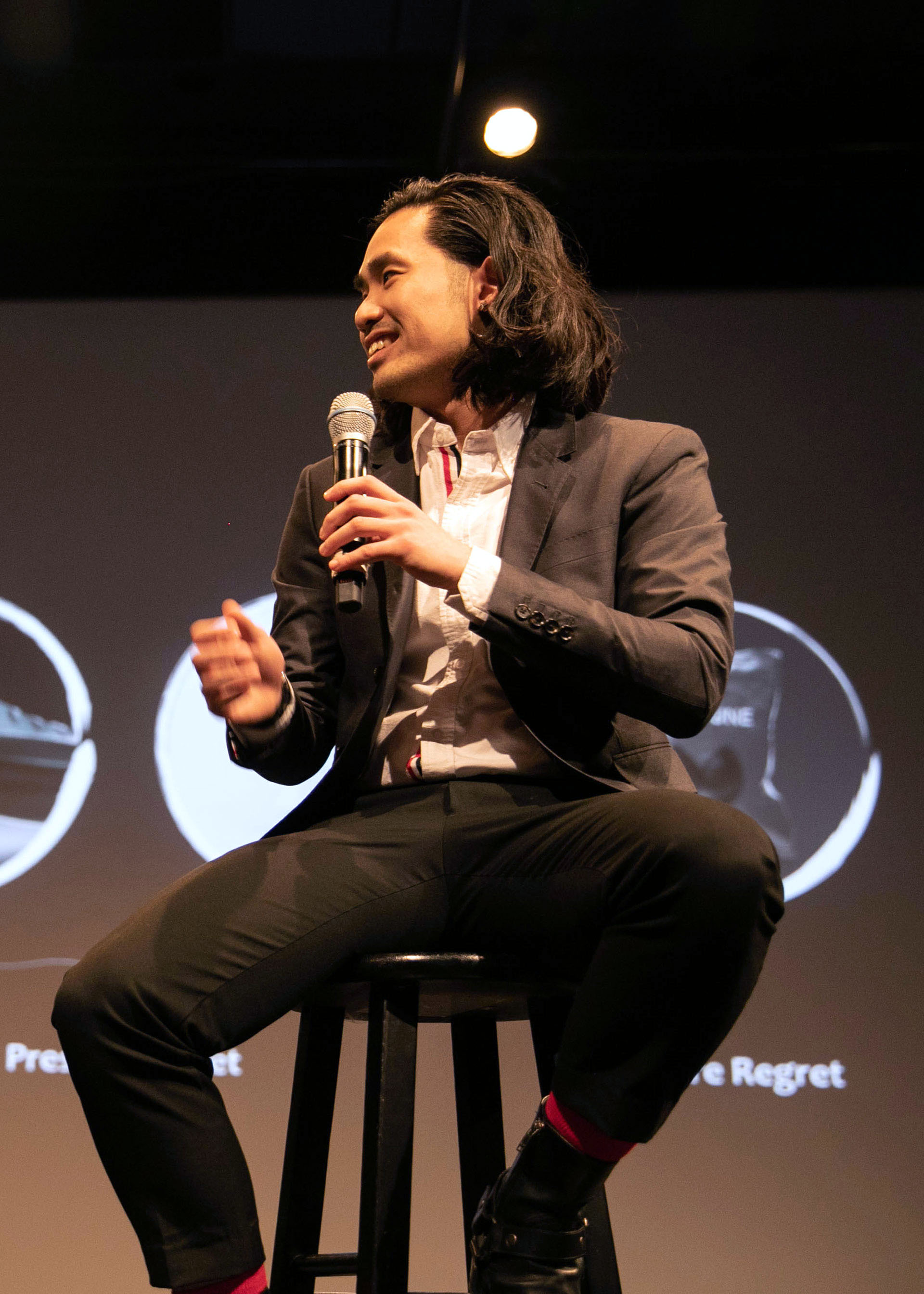
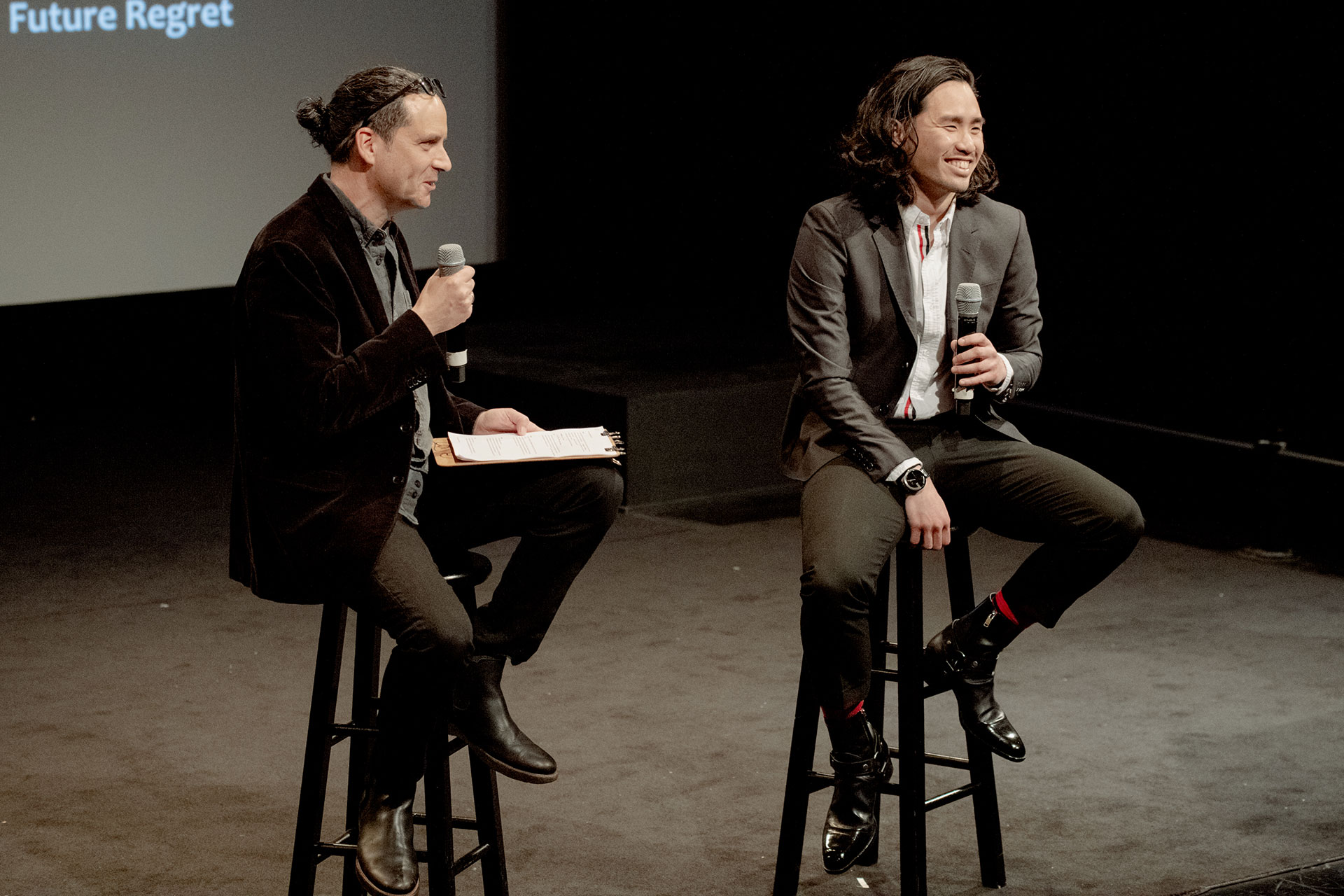
Actually, Not That Bad
Actually, Not That Bad was a public experience designed to help people gain different perspective about their regrets, using Downward Counterfactual Thinking, a thinking methodology that involves focusing on situations that are worse than reality (like asking, “How could it have been worse?”). Tzu-Ching defined a set of prompts that guided participants towards envisioning worse outcomes than the ones they already regret:
What’s your regret?
Could it be worse?
Could it be even “worser”?
Luckily, those things didn’t happen.
Fit
Fit is a detachable smart sole that allows users to anticipate bodily changes in real time, helping them reach their weight targets and enhance their sports performance. With a built-in scale, Fit weighs the user every time they take a step; the sole vibrates and sends the user an app notification when their body weight changes, allowing them to make lifestyle adjustments as they deem necessary to prevent future regrets around fitness.
Balance
Through his research, Tzu-Ching found that a common regret among the dying was having spent too much time working; in response, Tzu-Ching designed Balance, an hourglass that visualizes time spent between work and family. The sand of the hourglass buries the words “work” and “family”, depending on the orientation of the hourglass. When “family” is almost covered, Tzu-Ching says, “Flip it over, and give your family some attention, even if it’s just to give them a phone call.”
Fortune
Fortune is an app that customizes fortune cookies based on experiences of regret reported by the user. The app then delivers the cookies to the user in the future, to prevent them from repeating the patterns that caused them pain. When users input their regret, they clarify their regret, write a note to themself, choose a category for the regret, and pick a cookie flavor for the category.
Fortune comes with a sound-activation feature that automatically opens the app when the user says, “Oh, shit!”. Through the app’s Instant Suggestions feature, users can share their experiences and exchange advice on how to curb future regrets, creating a sense of community and consolation. The app also allows users to view their activity log, to track the nature and frequency of their regrets, and help prevent it in the future.
To learn more about Tzu-Ching Lin’s work, take a look at his projects in more detail at www.tzuchinglin.com.



